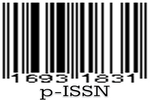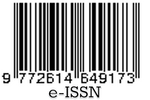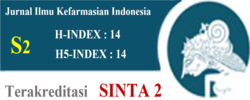The impact of medication adherence on health outcomes for patients with metabolic syndrome
Abstract
Cardiovascular disease is a non-communicable disease that is often associated with metabolic syndrome (MetS). MetS is a group of abnormal conditions that include hypertension, obesity, and diabetes. Patients with MetS often require multiple drugs to achieve therapeutic targets, but poor medication adherence can lead to complications. Poor medication adherence can worsen the disease and increase hospitalizations. The purpose of this study was to investigate whether medication adherence affects metabolic syndrome outcomes. This study was conducted using a cross-sectional design and purposive sampling. Our respondents were focused on patients with hypertension, diabetes mellitus, or dyslipidemia. Patients' adherence was measured using a self-made questionnaire. The study obtained data on the patient's lipid profile, HbA1c, and blood pressure (hypertension, diabetes, or dyslipidemia). The study used Spearman analysis to investigate adherence scores to lipid profile levels, HbA1c, and blood pressure. Therapeutic coverage was analyzed using a T-test. Confounding variables, such as age, HbA1c level, and blood pressure, were considered when analyzing the correlation between adherence scores and lipid profiles. The majority of patients were women or elderly, and more than 90% reported that their therapeutic needs were met. Total cholesterol and LDL-c significantly negatively correlated with adherence for patients' factor category, therapeutic regimen factor, and overall factor (p<.05). Triglyceride levels correlated significantly with adherence only to category interaction factors between patients and family/health workers. Regression analysis shows that all correlations are negative to total cholesterol, LDL, HDL, and triglyceride levels (p<.05).

This work is licensed under a Creative Commons Attribution-NonCommercial-ShareAlike 4.0 International License.
Licencing
All articles in Jurnal Ilmu Kefarmasian Indonesia are an open-access article, distributed under the terms of the Creative Commons Attribution-NonCommercial-ShareAlike 4.0 International License which permits unrestricted non-commercial used, distribution and reproduction in any medium.
This licence applies to Author(s) and Public Reader means that the users mays :
- SHARE:
copy and redistribute the article in any medium or format - ADAPT:
remix, transform, and build upon the article (eg.: to produce a new research work and, possibly, a new publication) - ALIKE:
If you remix, transform, or build upon the article, you must distribute your contributions under the same license as the original. - NO ADDITIONAL RESTRICTIONS:
You may not apply legal terms or technological measures that legally restrict others from doing anything the license permits.
It does however mean that when you use it you must:
- ATTRIBUTION: You must give appropriate credit to both the Author(s) and the journal, provide a link to the license, and indicate if changes were made. You may do so in any reasonable manner, but not in any way that suggests the licensor endorses you or your use.
You may not:
- NONCOMMERCIAL: You may not use the article for commercial purposes.
This work is licensed under a Creative Commons Attribution-NonCommercial-ShareAlike 4.0 International License.





 Tools
Tools





















